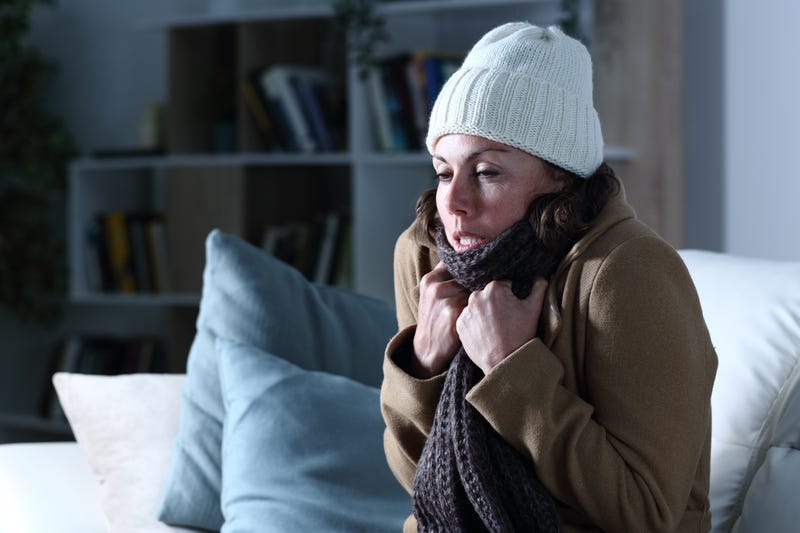
SOUTHFIELD (WWJ) - A major winter storm with increasing chances of dangerous blizzard conditions is taking aim at Michigan, experts warn -- and now is the time to prepare for potential widespread outages.
"A rapidly intensifying winter storm will bring accumulating snowfall, strong wind gusts, and bitter cold to southeast Michigan Friday into the holiday weekend," the National Weather Service said in a Wednesday update.
With bitter cold temperatures dropping into the teens or single digits by Friday and winds expected to slam the Great Lakes State at gusts in excess of 50 mph or more in isolated areas, meteorologists said conditions will "be very dangerous" if long-lasting power outages occur.
The frigid temperatures are due to an arctic airmass sinking into southeast Michigan, meteorologists said, and residents would do well to prepare now for the impacts.
According to state officials, these are the biggest reminders for Michiganders in the event that lights go dark:
• Check flashlights and battery-powered portable radios to ensure that they are working, and you have extra batteries. A radio is an important source for obtaining weather and emergency information during a storm.
• Have sufficient heating fuel, as regular sources may be cut off.
• Have emergency heating source and fuel -- such as a gas fireplace, wood burning stove or fireplace -- so you can keep at least one room livable. Be sure the room is well-ventilated.
• Make sure your home is properly insulated. Caulk and weather-strip doors and windows to keep cold air out.
• Install storm windows or cover windows with plastic from the inside to provide insulation.
• Know how to shut off water valves.
• Never try to thaw a pipe with a torch or other open flame. You may be able to thaw a frozen pipe with the warm air from a hair dryer. Start by warming the pipe as close to the faucet as possible, working toward the coldest section of pipe.
• Fill your bathtub and spare containers with water if your water supply could be affected, such as a well-water pump system. Water in the bathtub should be used for sanitation purposes only, not as drinking water. Pouring a pail of water from the tub directly into the bowl can flush a toilet.
• Check with your pharmacist for guidance on proper storage during an extended outage if you have medication that requires refrigeration.
• Review the process for manually operating an electric garage door.
Authorities are also providing the following tips for Michiganders to stay warm in the event the power goes out:
• Wear several layers of loose-fitting, light-weight, warm clothing, rather than one layer of heavy clothing. The outer garments should be tightly woven and water repellent. Mittens are better than gloves.
• Wear a hat -- most body heat is lost through the top of the head.
• Cover your mouth with a scarf to protect your lungs.
• Watch for signs of frostbite: loss of feeling and white or pale appearance in the extremities such as fingers, toes, ear lobes or the tip of the nose. If symptoms are detected, seek medical help immediately.
• Watch for signs of hypothermia: uncontrollable shivering, memory loss, disorientation, incoherence, slurred speech, drowsiness and apparent exhaustion. If symptoms are detected, get the victim to a warm location, remove any wet clothing, warm the center of the body first and give warm, non-alcoholic beverages, if the victim is conscious. Get medical help as soon as possible.
• Protect against possible voltage irregularities that can occur when power is restored, unplug all sensitive electronic equipment, including TVs, stereos, and computer.
• Use gasoline-powered generators with caution. Never run a generator inside a house. Place it outside with exhaust facing away from the home.
For more winter weather emergency preparedness, visit MIREADY.
